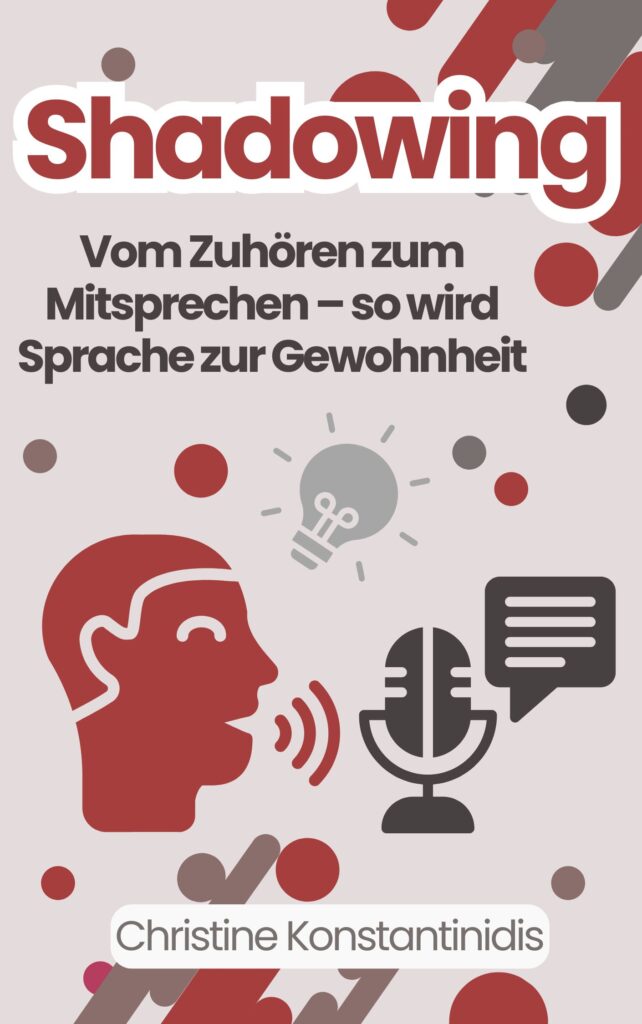
Auch heute gibt es wieder die Originalantworten in Englisch und Italienisch zur fünften Folge der Interviewserie auf meinem Blog und auf dem Blog von Sprachheld.de
Die fünfte Frage lautete:
How can you manage to learn despite all your other obligations?
Come riesci a studiare regolarmente quando ci sono altri impegni?
Viel Spaß beim Lesen der Antworten. Die deutschen Übersetzungen findest du in den beiden oben verlinkten Artikeln.
Olly Richards
By keeping it small. The trick is to have clear goals. If you know your next-step goal, you don’t need to study for hours in order to make regular progress. However, if you don’t have anything clear to aim for, how can you study in a way that makes good use of your time? This is easier said than done, though, and comes from experience. In fact, it’s such a big problem for people that I created a course called Time Control which shows people exactly how to reach their language goals quickly, even with a hectic schedule.
Jane Eggers
To be honest I don’t manage it very well. With German, I still learn things as they come up, simply as part of life (see no. 4) but I’m not good at putting in the effort to keep up with Italian.
Guilherme Castro
Finding the time to learn can be the most difficult point through all the process of Language Acquisition (LA), but it is not impossible to hit that wall. In my case, I use language learning as a kind of recreation activity. So when I am tired during my job and want to relax a little bit, I simply watch a 10-minutes video in English or Japanese about some subject that I am interested in. So instead of wasting time using Facebook for 10 minutes, I can enjoy a good time learning. Moreover while I am having my breakfast before going to work, I can also watch a short video or read a lesson of a book. It is really a matter of finding the time, having a routine and committing to what you are doing. Find the time also depends on general organization, on how you plan your daily activities in general.
Kirsty Major
With good time planning and multitasking! So I can listen to a podcast whilst doing something else or I break bigger tasks down into manageable blocks of time that are easier to fit into my day. It’s much better to learn for half an hour each day than to do 3.5 hours on a Sunday afternoon and then nothing for the rest of the week.
Giulia Novali
Si cerca di dedicare più tempo possibile alle cose che si amano.
Chiara Fortini
Trovo il tempo la sera quando la mia bambina va a dormire o quando la aspetto mentre pratica la sua lezione di nuoto.
Riesco a dedicare questi momenti allo studio, alla lettura o all’ascolto di testi in lingua straniera perché penso a tutti i vantaggi che ci sono nel sapere una lingua. In pratica credo fermamente a tutti i vantaggi che propino ai miei studenti e che ho elencato nella risposta n 1 per invogliarli a studiare
Claudia Scaringi
Non è sempre facile trovare un equilibrio tra lavoro e tempo libero, specialmente in lavori come il mio dove bisogna lavorare con persone in altri fusi orari o dove non si hanno gli orari di un ufficio. Ciò è meraviglioso per molti punti di vista ma a volte porta a lavorare più ore di quanto si dovrebbe oppure si saltano le pause. Le pause e, in generale, il riposo sono vitali nell’apprendimento delle lingue e nella vita, perché, quando il cervello si rilassa, riesce a creare delle legami fra le nozioni che abbiamo nella memoria a lungo termine con le nuove nozioni che abbiamo appena preso e, in questo modo, è più facile ricordarsi i concetti. In inglese ciò viene definito chunking.
Quindi, come organizzarsi nella vita di tutti i giorni? Semplice: lavoro – pausa – studio – pausa. Questa semplice catena di attività può adattarsi ai vostri orari. Siete super impegnati? Lavoro – 10 minuti di pausa – 15 minuti di studio – 10 minuti di pausa. La qualità è sempre, e da sempre, più importante della quantità.
Das waren die Originalantworten zur fünften Interviewfrage. Die Antworten von Giulia, Chiara, Olly, Kirsty und Jane in deutscher Sprache findest du bei mir auf dem Blog, die Antworten von Claudia und Guilherme bei Sprachheld.de.
Herzliche Grüße
Christine





I would like to join the experts with my 5 Pillar Formula for Successful Mastering a Foreign Language:
http://www.germanskills.com/#!What-is-the-Best-Way-to-Successfully-Master-German/cjbf/550b11990cf292acc4bcf4dc
Und für alle Deutschlerner ist hier mein Liebesrezept zum Deutschlernen: http://www.germanskills.com/#!Liebesrezept-zum-Deutschlernen/cjbf/56bbbe7b0cf2dc1600ed7bfa
Hallo Dilyana,
danke für die beiden Links.
Viele Grüße
Christine